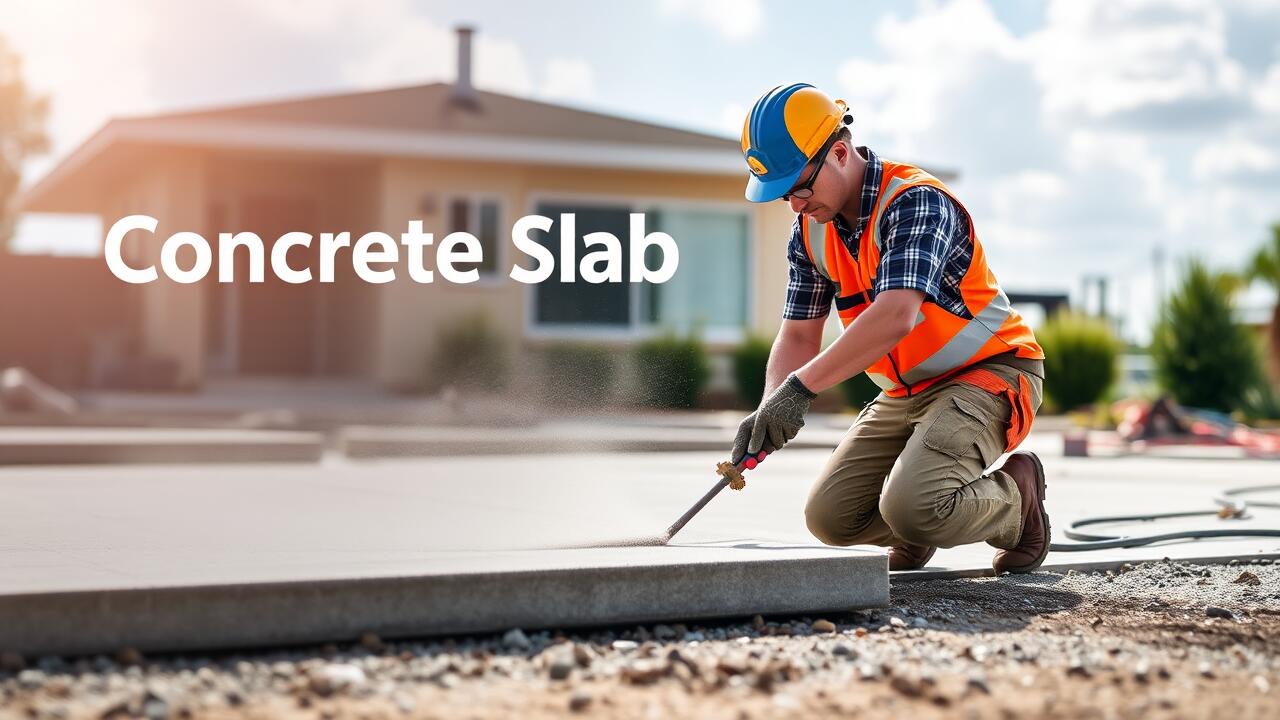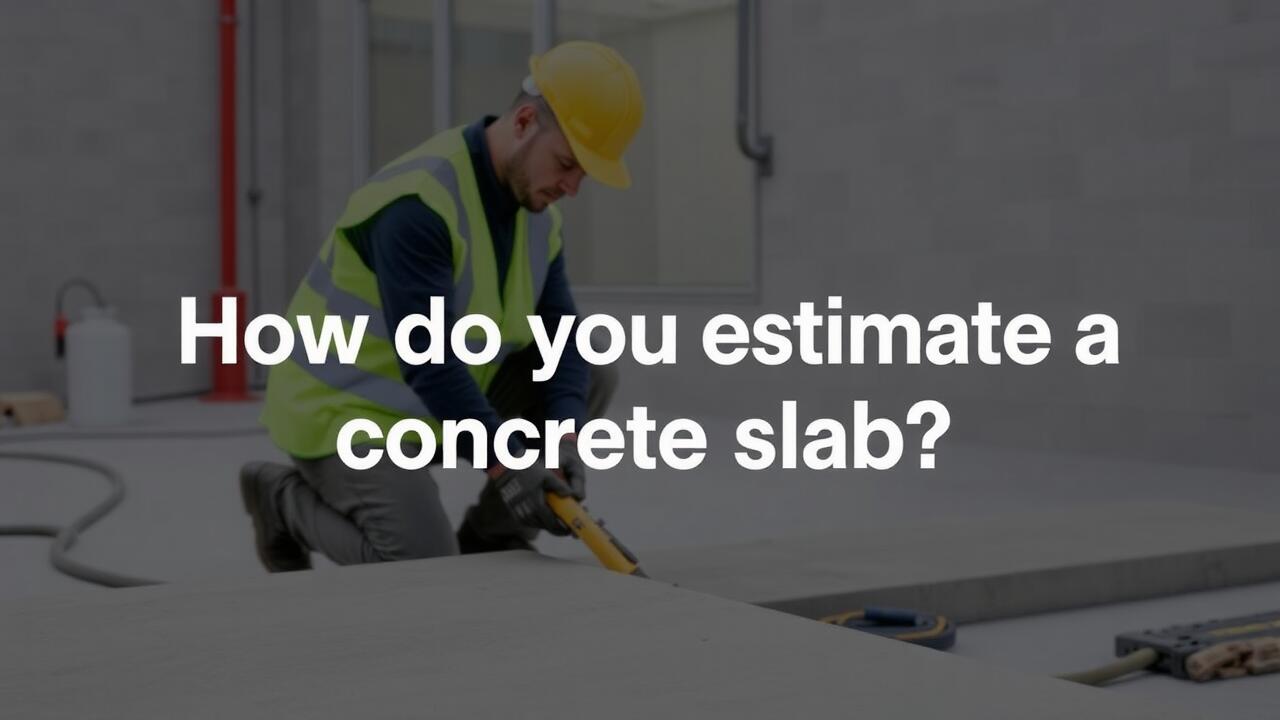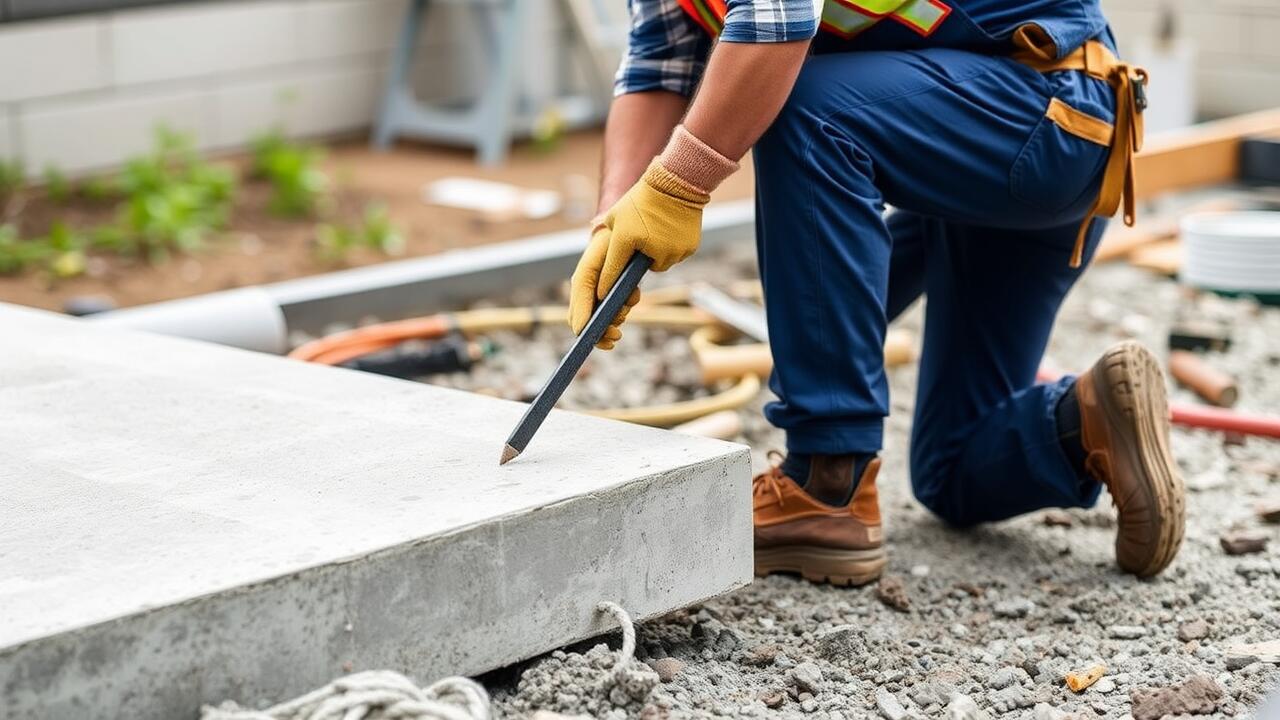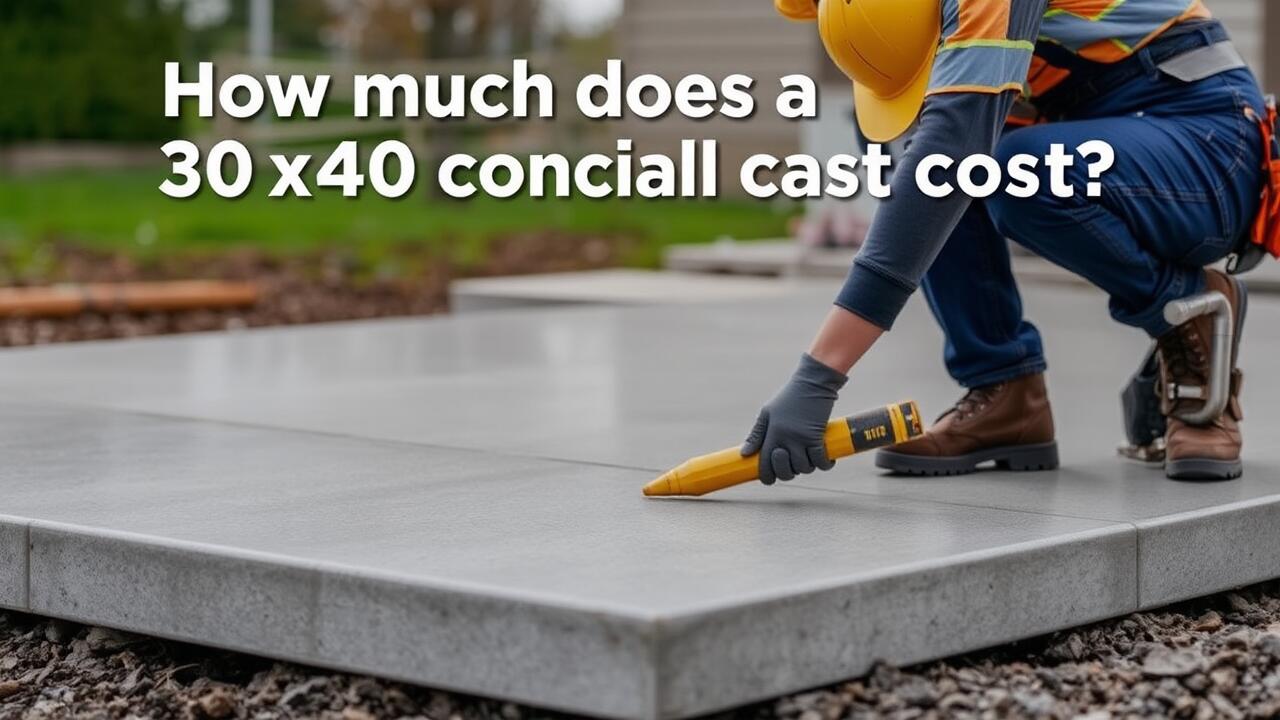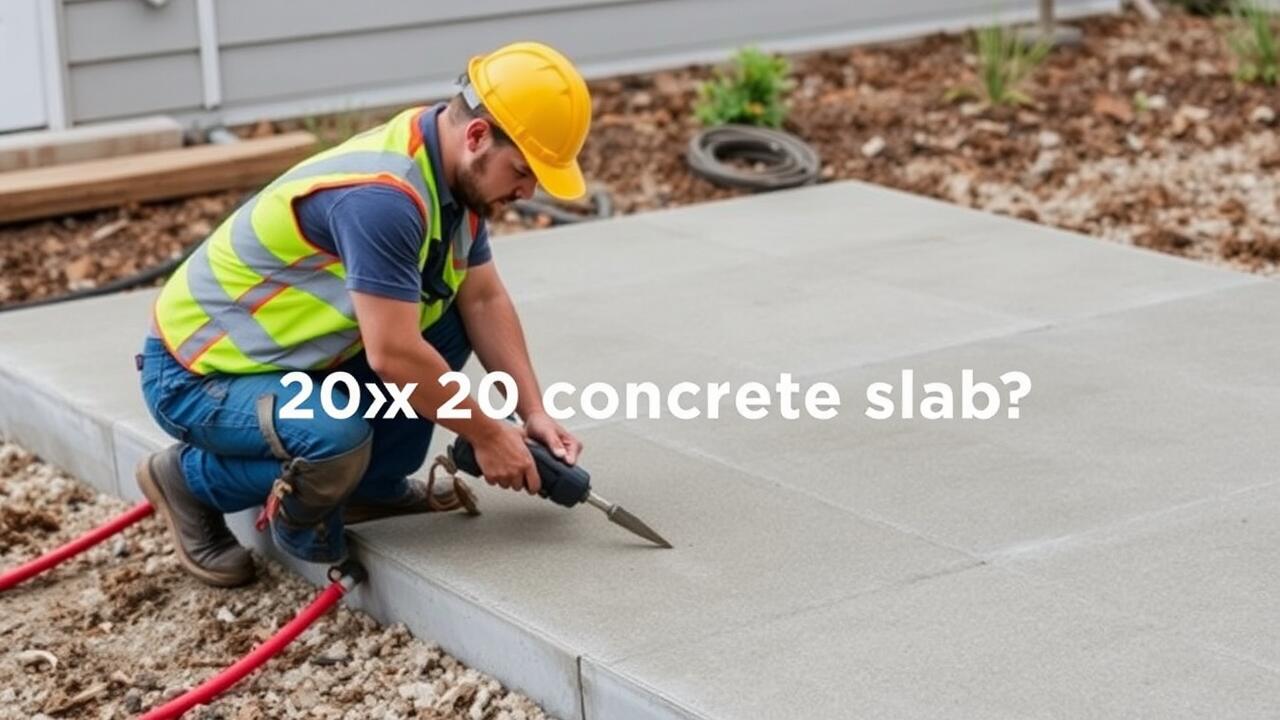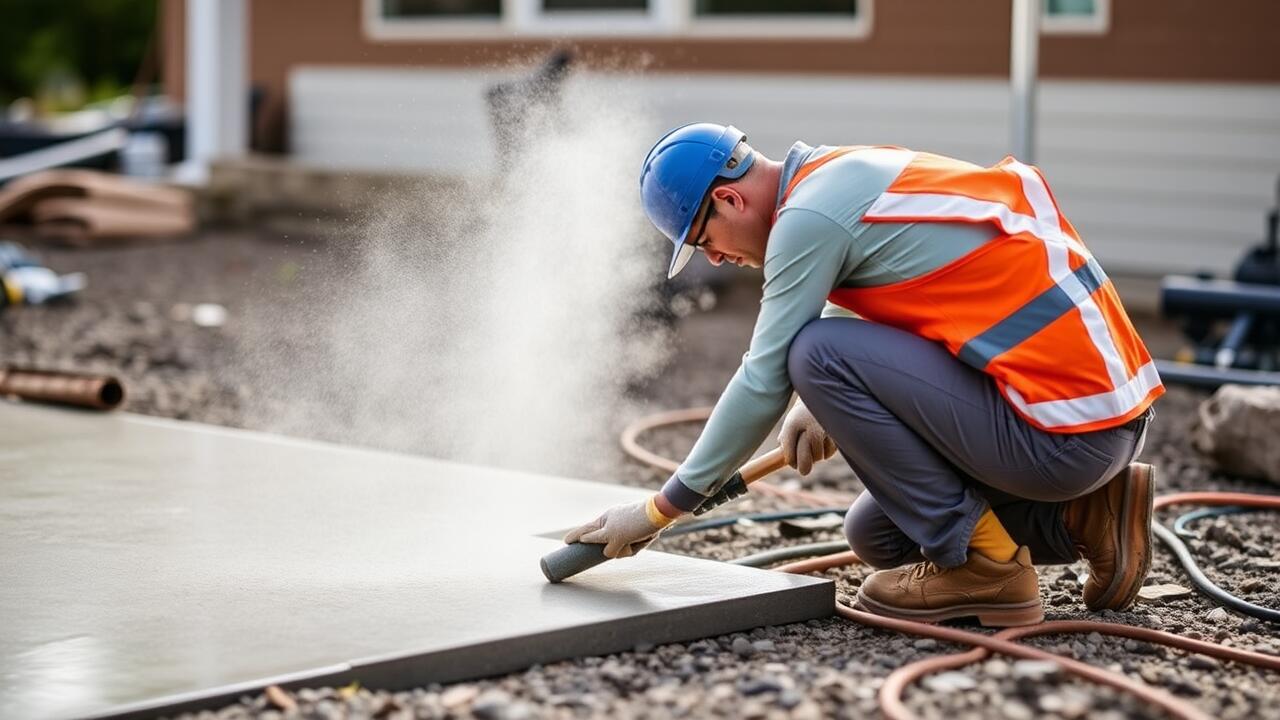
Types of Concrete Slabs
Concrete slabs come in various types, each serving distinct purposes and applications. The most common types include residential slabs, which are often used for foundations, driveways, and patios. Commercial slabs are designed for higher loads and durability, making them ideal for warehouses and industrial buildings. Decorative slabs, such as stamped or colored options, add aesthetic appeal to outdoor spaces and can enhance a property's overall value.
The choice of slab type significantly influences the cost and requirements of installation. For example, a basic residential concrete slab may be more affordable compared to specialized options like insulated or reinforced slabs used in specific climates. When considering a project like Concrete Slab Installation Desert View, Phoenix, it's essential to evaluate the specific needs and requirements of the site to determine the most suitable slab type that balances functionality, aesthetics, and budget.
Differences in Cost for Different Slab Types
The cost of concrete slab installation can vary significantly depending on the type of slab being installed. A standard concrete slab is generally the most affordable option, often used for basic foundations and patios. On the other hand, decorative concrete slabs, such as stamped or stained options, can drive costs up due to the additional materials and labor involved in creating intricate designs. Specialty slabs, like those reinforced for heavy-duty use, also come with higher price tags because they require more advanced materials and installation techniques.
When considering concrete slab installation in places like Ahwatukee Foothills, Phoenix, other factors play a role in pricing. The thickness and complexity of the slab affect labor costs, as thicker and more complex installations demand more skilled labor and time. Additionally, factors such as accessibility to the site, local market demand, and specific regional considerations in Arizona can further influence the final cost. Therefore, potential homeowners or contractors need to evaluate all aspects of the project to get a clear estimate for their specific needs.
DIY vs. Hiring Professionals
Choosing to undertake a DIY concrete slab installation can appeal to homeowners looking to save money. It allows for greater control over the project timeline, materials, and techniques used. For those comfortable with physical labor and possessing the necessary skills, pouring a concrete slab can be a rewarding endeavor. However, the initial savings may be countered by potential hidden costs associated with mistakes, equipment rentals, and time lost if unexpected issues arise.
On the other hand, hiring professionals for concrete slab installation, like those offering services in Concrete Slab Installation Camelback East, Phoenix, can provide a sense of security. Experienced contractors bring specialized knowledge and tools, ensuring the project meets industry standards and is completed efficiently. While the upfront cost may be higher, it often guarantees a quality finish, reducing the likelihood of complications in the long run. In areas where local regulations must be followed, hiring experts can also help navigate these requirements smoothly.
Cost Comparison Between Approaches
When considering the cost of concrete slab installation, homeowners often weigh the options of DIY versus hiring professionals. Opting for a DIY approach can initially appear more cost-effective, as it allows individuals to cut labor expenses. However, the costs can quickly accumulate, especially when purchasing materials, tools, and equipment rentals. Mistakes during the pouring process can lead to additional expenses for repairs or redoing the work.
On the other hand, hiring professionals brings its own set of advantages that often justify the higher upfront costs. Professional contractors have the right equipment, knowledge, and experience to complete the installation efficiently and effectively. For instance, services like Concrete Slab Installation Camelback East, Phoenix, offer skilled labor that can save time and ensure high-quality results. While the initial investment may seem steep, the long-term benefits of durability and aesthetic appeal often outweigh the temptation of a DIY project.
Seasonal Considerations
Seasonal factors significantly influence the cost and feasibility of concrete slab installation. Colder temperatures can lead to delays in curing times, which may require the use of special additives or techniques to ensure the concrete sets correctly. In regions like Camelback East, Phoenix, where summer temperatures can soar, pouring concrete during the hottest months may necessitate precautionary measures to prevent premature drying. This can increase labor costs and might lead to a need for additional material.
Moreover, rainy conditions can become problematic for outdoor projects. Wet weather can halt work, extend timelines, and impact overall costs due to potential damage or the need for extra protective measures. Homeowners in Camelback East, Phoenix, should pay close attention to seasonal forecasts and plan accordingly to avoid unexpected expenses related to weather-related delays during concrete slab installation.
How Weather Affects Concrete Costs
Weather plays a crucial role in determining the costs associated with concrete slab projects. Extreme temperatures can affect both the curing process and the overall integrity of the slab. During warmer months, rapid evaporation can necessitate additional measures, such as special curing agents or frequent watering, to ensure the concrete sets properly. In colder weather, the risk of freezing can delay the installation and may require heated enclosures, resulting in higher costs.
Moreover, seasonal fluctuations can influence labor availability and pricing. Contractors may charge more during peak construction seasons due to increased demand. A project like Concrete Slab Installation Camelback East, Phoenix, may see variations in quote estimates based on the time of year and weather conditions. It's essential to consider these factors when planning a concrete slab installation to avoid unexpected expenses.
FAQS
What is the average cost of pouring a concrete slab?
The average cost of pouring a concrete slab typically ranges from $4 to $8 per square foot, depending on various factors such as location, slab thickness, and type of concrete used.
What types of concrete slabs are there?
Common types of concrete slabs include standard slabs, reinforced slabs, insulated slabs, and decorative slabs. Each type has different costs and applications based on the intended use.
Is it cheaper to do a DIY concrete slab?
While doing a DIY concrete slab may seem cheaper initially, it can lead to hidden costs such as equipment rental, material waste, and potential repairs if the job isn't done correctly. Hiring a professional often ensures better quality and longevity.
How does weather affect the cost of pouring concrete?
Weather can significantly impact concrete costs. For instance, pouring during extremely hot or cold weather may require additional materials or techniques, which can increase overall costs.
Are there seasonal considerations to keep in mind for pouring a concrete slab?
Yes, it's best to pour concrete during temperate seasons, ideally in spring or fall, when temperatures are mild. Extreme heat or cold can affect curing times and the integrity of the slab, potentially leading to increased costs.
